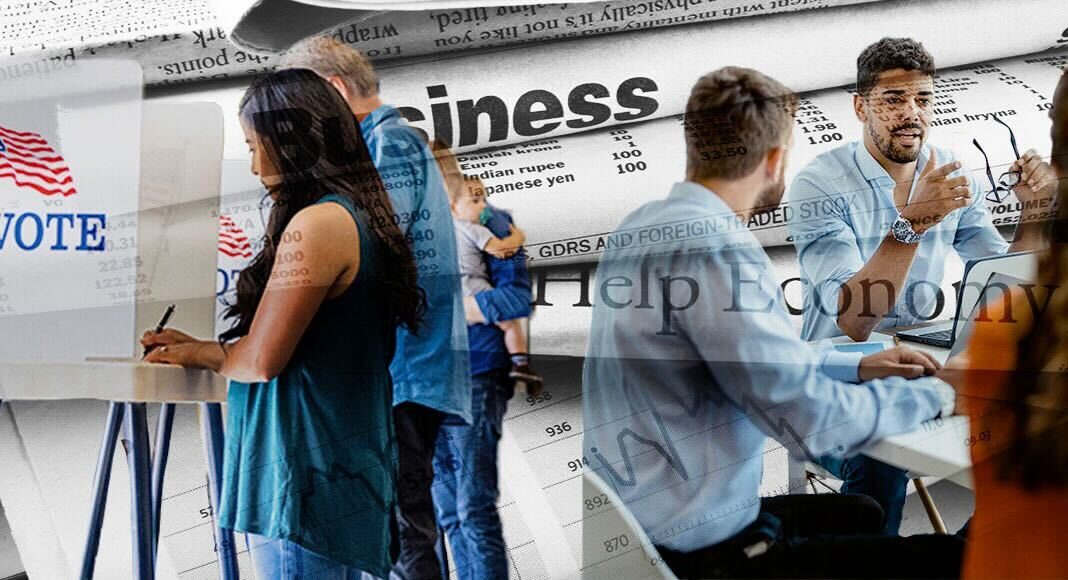A large body of literature has produced uncertain conclusions about how elections affect firms’ access to credit. In a wide-ranging analysis of firm behavior in 44 countries, Florian Léon and Laurent Weill find that electoral uncertainty deters companies from borrowing until the composition of the next government and its policies become clearer.
Only money matters. It’s what motivates people to launch a business. It enables entrepreneurs to realize their projects. This is why access to credit is integral to companies’ operations and the economy as a whole. When a firm is credit-constrained, it is unable to realize worthwhile projects and exploit investment opportunities.
A large set of empirical studies shows that the lack of access to credit can impair the economy at the macro level by hurting firm productivity and firm growth at the micro level. In a nutshell, improved access to credit goes hand in hand with higher economic development. International organizations and academics have therefore conducted a massive body of work to identify and overcome obstacles to credit access, including the role of firm characteristics (e.g., access to credit is easier when the firm is larger) and country characteristics (e.g., better legal institutions increase access to credit).
One characteristic impacting credit access that academics have studied are elections and election cycles. One view within the literature posits that election cycles promote access to credit because incumbent governments will influence banks to boost their lending in the run-up to an election to spur investment and thus employment and headline economic growth. Governments can directly influence state-owned banks, since these banks are under their control. They can also affect private bank lending through a toolkit of carrots and sticks, like changes in banking regulation or threats of withdrawing banking licenses. In line with this view, a handful of recent studies have concluded that state-owned banks increase lending in election years relative to private banks, while bank failures tend to be delayed during electoral cycles.
However, a second view assumes that elections impair access to credit. Elections exacerbate political uncertainty, such as which politicians and parties will assume power and their forthcoming economic policies. In some nations, election cycles also introduce the heightened risk of political violence. Even in countries where elections are not fully free, the election cycle can generate political uncertainty about their consequences.
Therefore, elections can reduce credit demand as fewer firms request loans to finance their future prospects until electoral and political uncertainties and their impact on the economy diminish. Elections can also reduce the credit supply if banks are reluctant to lend in uncertain times by raising the cost or criteria of a loan. Empirical evidence supports both the demand and supply-side constraints: political uncertainty causes firms to delay their investments, and banks to increase the cost of a loan.
To unravel the conflicting conclusions on if and how elections and election cycles impact credit access, we investigated a set of 25,000 firms of all sizes from 44 (mainly developing) countries to determine the effect of elections on companies’ access to credit. Notably, our analysis found that the uncertainty of elections exerts a detrimental influence on access to credit and thus corrodes the economy itself. Firms are most credit-constrained in election and pre-election years (i.e., the year before), such that access to credit is reduced by 5.2 percentage points in election years and by 5.1 percentage points in pre-election years. For perspective, only 44% of the firms in need of funding in our worldwide sample had access to the necessary credit on average.
Furthermore, we found that the detrimental effect of elections on credit access only takes place on the borrower side, meaning that lower credit is due to firms’ reluctance to borrow. By contrast, we observed no significant electoral impact on the lender side, meaning that elections do not affect the credit supply. In other words, higher political uncertainty associated with elections affects the behavior of firms but does not influence the behavior of banks.
Of course, not all elections are the same. Elections in strong democracies, such as the Nordic countries, differ greatly in political significance from those in weak democracies or election-holding autocracies such as Russia. Our analysis finds that the detrimental impact of elections on access to credit is amplified in more democratic countries. This conclusion makes sense given that elections are freer and thus more potentially uncertain in strong democracies. Firms that wish to borrow cannot be so certain about the final results. In conclusion, elections reduce the access to credit by deterring companies from seeking it. The higher the uncertainty in the results of the election, the less likely firms are to borrow in the run up to the election. Because elections are more unpredictable in strong democracies, this reduced access to credit is similarly heightened. These results should not be misconstrued as an economic argument against democracy. A vast range of works has shown how democracies enhance economic growth overall, such as those by Daron Acemoglu. Our analysis simply identifies how the impact of elections on access to credit can be a thorn in the side of democracy.






